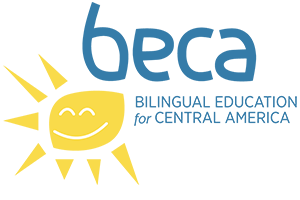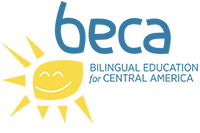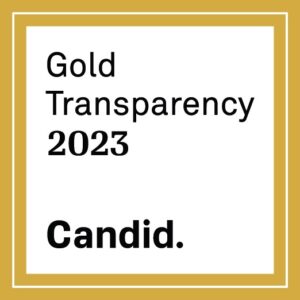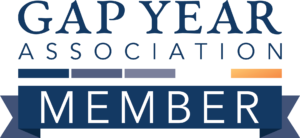Questions about our programs or the application process? Check the list below or contact us if your questions are not answered here.
BECA covers all volunteer housing, food, and training costs. Incidental expenses like high-speed internet and classroom materials are covered and assistance is provided in obtaining temporary residency status.
There is no program fee to be a yearlong volunteer teacher with BECA. Volunteers are responsible for their flights to Honduras, health insurance to cover them while they are in country (if needed), and background check costs.
While we accept volunteers of any age, the vast majority of our volunteers are between 21 – 35 years old.
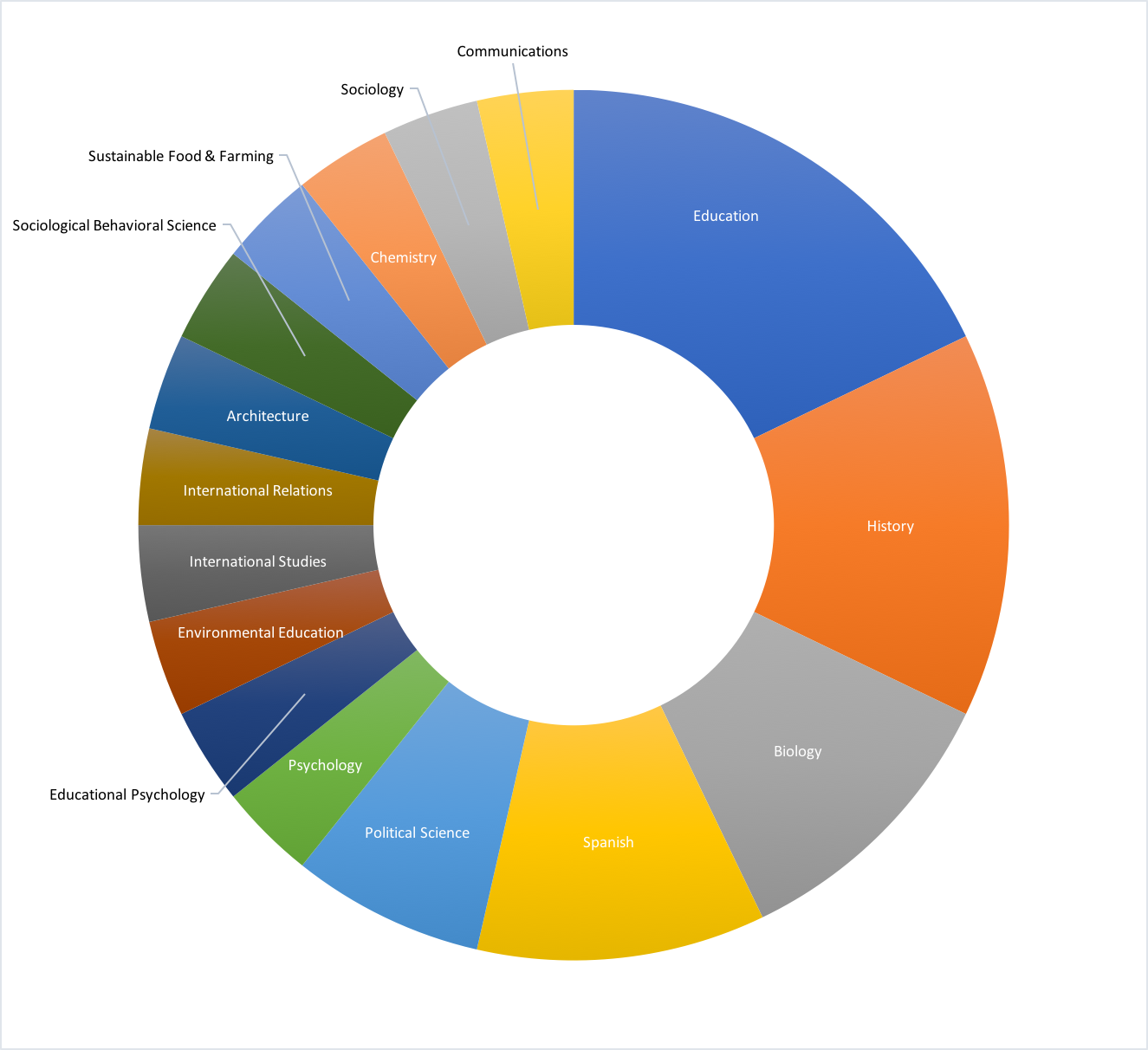
BECA’s goal has always been to graduate students who return to serve as teachers in our classrooms. These days the majority of our team are indeed graduates of our schools. And, an important part of our mission is our commitment to intercultural collaboration. The international members of our team have come from across the globe and so many of them maintain lifelong connections to our communities – staying in touch long after their years of volunteer service.
Teachers who share the backgrounds of their students do more than just teach their students the possibilities; they show them what is possible. In our recruitment we seek teachers with diverse backgrounds, views, and skills to serve our classrooms of students.
The first step is understanding your loans – how many loans do you have? What kind of loans do you have – private loans or federal loans? When will you need to start repaying your loans?
Most student loans have a 6-month grace period, which means you won’t have to make payments until 6 months after you graduate. Since our volunteers work in Honduras for at least a full year, many of them have opted to defer their student loans. Depending on your loan type, you may opt for a deferment while you volunteer with us. For Federal student loans, you may want to apply for an Economic Hardship Deferment (for up to 3 years). Again, it is important to know the ins and outs of your student loans as some loans do not accrue interest while under deferment but others do. If it is within your financial means, it is recommended to continue making interest payments on your loans to help alleviate the burden once your deferment ends. BECA is able to provide you with a “Proof of Volunteerism” document if you opt to request a deferment. Sometimes we are also able to connect with your insurer, if needed.
If appropriate for you, consider applying for the federally funded Public Student Loan Forgiveness Program, for which BECA is an eligible employer.
http://www.thesimpledollar.com/15-ways-to-deal-with-student-loan-debt/
http://www.thesimpledollar.com/student-loan-deferment-and-forbearance-wh…
Many of our past volunteers have offset their out of pocket expenses by teaching English to adults in the evenings. Not only is this a great way to earn a bit of pocket money, it’s a wonderful way to interact in a meaningful way with other community members! It is up to the individual volunteer to organize adult English classes or tutoring non-BECA students outside of the regular school day, as these are supplemental to BECA’s programs.
We continue to look for other partnerships where all of our volunteers – in Cofradía – can take advantage of income generating activities.
BECA accepts applications on a rolling basis, but please keep in mind that in order for a volunteer to take advantage of all the teacher training BECA has to offer, applicants must be offered a position, accept it, and arrive in Honduras by early/mid July. On average our application process can take 5 – 6 weeks to complete. The sooner you apply, the longer you will have to prepare for your year of volunteering with BECA and to fundraise to defer personal costs.
The application process starts with our online application. After the online application is submitted, you will be contacted by us to set up your first-round interview. In total there are two 60 minute interviews conducted by a mix of BECA alumni and staff. The first-round interview is focused on BECA’s mission and vision and health and safety in Honduras. After your first-round interview you will be asked to complete a Lesson Plan Assignment. The second-round interview is about teaching in a BECA school and the day-to-day life of a BECA teacher. You will walk the interviewer through your Lesson Plan, discuss your past teaching or tutoring experiences, and answer classroom situational questions.
While living in Honduras, food and waterborne diseases are the primary cause of illness. It’s almost impossible to live a year in a tropical climate without dealing with the occasional stomach issue, but by taking care to properly wash fruit and vegetables, prepare food, and NEVER drinking tap water the frequency and severity can be reduced. Most stomach issues and diarrhea can be treated with standard medications you can bring with you or obtain from a pharmacy in Honduras. If the issue becomes more severe volunteers have access to a doctor and local pharmacy that have treated us for the past and are very accommodating to our needs. For more severe health related issues or emergencies, the hospitals in nearby San Pedro Sula are safe, clean, and equipped with modern medical equipment.
Also to be aware of while in Honduras is dengue fever, Zika, and Chikungunya. Unlike other mosquito-borne illnesses, there is no medicinal prophylactic or curative regimen for either of these three diseases. During certain times of year when dengue is prevalent, we encourage our volunteers to take precautions against being bitten by mosquitoes to reduce the chances of contracting dengue.
Prior to visiting Honduras we suggest that all volunteers visit their doctor and the US Centers for Disease Control (CDC) website for detailed information and recommended vaccinations for Central America.
BECA volunteers should always be aware that they are living and working as a foreigner in a developing nation that has higher rates of crime than do industrialized nations. Sadly, poverty, drugs, and gangs are major contributing factors to crime and the country’s weak rule of law and rampant corruption do not act as a strong deterrent. Therefore, we urge all of our volunteers to be conservative in their movements, thoughts, and actions and to always exercise caution and prudence in their everyday life in Honduras. Like anyone traveling to a new place, volunteers should never carry large amounts of money, nor should they flaunt valuables, dress provocatively, or wear expensive jewelry that might draw attention. Additionally, volunteers should vary their routines to ensure they are not targeted over time.
In keeping with our principle of always encouraging an abundance of caution, we do not recommend walking around the communities where we work after 8pm. If you find yourself in a situation requiring that you are out after 8pm, please ensure that you notify your housemates or the In-Country Director, are accompanied by someone else, and carry nothing of significant value (i.e. laptops, passports).
Unlike the Peace Corp., our volunteers live together in intentional community where BECA and our local partner organizations have had a presence for over 16 years. We are know in our communities and those deep relationships offer a level of protection for all of our volunteers. However, there are parts of our communities that should be avoided especially at night or if you are by yourself. Special attention will be given during the safety orientation once you arrive in country to outline what areas are considered safe or unsafe at different times of the day and night.
Unlike our communities, San Pedro Sula and Tegucigalpa are big cities where you are much more anonymous. As is the case with any big city in the world, you should take great care when visiting neighborhoods outside of the main commercial district and avoid travel at night, especially to parts of the city with which you are not familiar. Much of the violence in Honduras is gang or drug-related and therefore should not affect you, but always be aware of your surroundings and show an abundance of caution. The most common security incident for a foreigner is robbery, and we will outline ways to minimize the risk of robbery during our safety orientation.
We strongly advise that if you must visit San Pedro Sula at night, you take a known taxi. You should not walk anywhere in San Pedro after dark, even in a big group. It’s also worth bearing in mind that if you are planning a late night out, taxi is the only means of return transportation from San Pedro Sula after 9:00pm.
BECA is only able to accept volunteers who come from one of the visa exempt countries (shown in green).
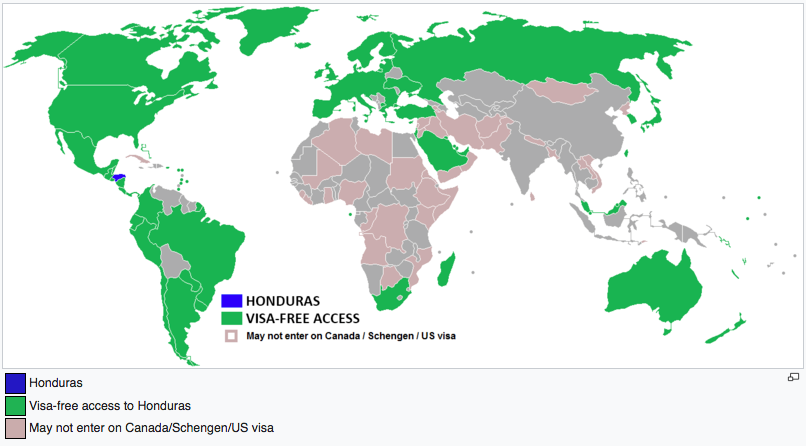
When you arrive, your passport will be stamped with a 90-day tourist visa. During your first 90 days, BECA will begin the process for you to obtain temporary residency status. If for whatever reason you are not granted temporary residency status, BECA will provide you with a stipend to go on a visa renewal trip outside of the CA-4 (Honduras, Guatemala, El Salvador, Nicaragua) for 72 hours so that you can re-enter Honduras a receive another 90-day tourist visa. For the past several years we have had success getting temporary residency status for all of our international volunteers.
Your passport must be valid for at least 6 months from the day you enter Honduras. You should also have at least 1 blank passport page for entry and exit visas.
Patriot Travel Medical Insurance https://www.imglobal.com/travel-medical-insurance/patriot-travel-medical…
TravelGuard International Travel Insurance https://www.travelguard.com/travelinsurance/international.asp
International SOS Personal Travel https://www.internationalsos.com/personal-travel
Volunteer Card (Short-term trips only) https://www.volunteercard.com/purchase/
Please conduct your own research and select a plan that meets your personal threshold of comfort. At a bare minimum, you should have a plan that provides for emergency medical evacuation (medevac) back to your home country in case the need arises. If you are planning to remain on your current health insurance coverage, contact your provider to make sure you are covered while outside of your home country. Please note that most plans that insure you while aboard operate on a reimbursement basis. Therefore you will likely be required to pay in cash or using a credit card and then submit the paperwork to your insurance company for reimbursement.
On Honduras and serving:
- Enrique’s Journey by Sonia Nazario
- The Fish that Ate the Whale: The Life and Times of America’s Banana King by Rich Cohen
- The Long Honduran Night by Dana Frank
- Sin Nombre (movie)
- Helping, Fixing, or Serving by Rachel Naomi Remen
On teaching:
- Educating Esme by Esme Raji Codell
- The First Days of School by Harry K. Wong and Rosemary T. Wong
- First Year Teacher’s Survival Guide by Julia G. Thompson
- How Children Succeed by Paul Tough
- Teach Like a Champion by Doug Lemov
- How to Start on Teach First by Joe Kirby
- The Art and Science of Teacher by Robert Marzano
Our volunteers at SJBS and SMBS share several homes (two people to each bedroom) close to the center of Cofradia and about a fifteen minute walk from the school. Our house is situated in an elevated part of Cofradia and has a picturesque view of the Merendon mountains from the airy patio area. We also rent several apartments in one building immediately off the town’s main square. Much of the time there is running water and a modern flush toilet. Occasionally there is no running water. When this happens, we use the water that is collected outside the house in a large cement trough called a pila to flush the toilet, shower, and wash dishes and clothes. Electricity is relatively reliable, but can go out without warning for several hours at a time – especially during the rainy season.
BECA intentionally provides very basic amenities in our living spaces as a way to live out our mission of equality – we want our BECA volunteers to live similarly as their students and families live. Every bedroom has 2 twin beds, a fan, and clothing shelves or racks. All kitchens have a gas stovetop and some kitchens have a stove-oven combo. All kitchens are equipped with a refrigerator, water dispenser, and basic cutlery and dishes. All communal areas have a couch, table, chairs, and bookshelves. Each living space has an updated emergency kit as well.
In Cofradia, each living space has a washer but they do not all have dryers so you may have to hang dry your clothing.
There is running water but no hot water. Sometimes when the water goes out you will use the water in the pila to take a “bucket shower”. (Pro tip: In the cooler months, warm up the water on the stove to take a “hot bucket shower”.)
We recognize that we provide very basic amenities and we encourage volunteers to make their living space their own. Bring pictures, maps, posters, and flags to decorate your room.
Family and friends may send you packages or letters, but note that the Honduran mail system is not entirely reliable. Standard arrival time is two weeks however it can take upwards of a month or two to reach their destination. Never send valuables or cash by mail as customs officers frequently open foreign mail during inspection. FedEx and DHL operate in Honduras, and while these services are much more reliable, the price is usually prohibitively expensive. If you need something sent down urgently, ask team members about visitors who may be able to bring down supplies for you. In the past, parents have mailed items to visitors before they leave the States, and then they ferry down the goods. If your family or friends want to send you something in the mail use this address:
[Your Name] Recomendado Don Wilfredo FajardoBarrio El Centro
Cofradía, Cortés HONDURAS
You have two options – either purchase a cheap phone once you are in Honduras and purchase minutes (saldo) to text and talk or bring down an unlocked smartphone and purchase a Honduran SIM card once in country. A cheap phone will cost around $20 and saldo is fairly inexpensive. Most people who purchase a cheap phone for day-to-day use leave their smart phone at home as it will only work with wifi. If you choose to bring down an unlocked smartphone, we do not recommend bringing the latest model but rather an older smartphone that will not attract unnecessary attention.
Currently, we do not provide specific curricular expectations for Art, Crafts, Music, Health, Technology, or P.E. Each teacher thus has great discretion regarding how these subjects are taught, so we encourage you to take initiative and be creative.
Our 6-week Summer Institute Training is provided to all incoming teachers that will prepare them for success in the classroom. We like to say our Summer Institute is a Masters in Education squeezed into a couple weeks. The training covers topics such as Foundations in Educational Theory, Multiculturalism (i.e. focus groups with students’ parents to hear their cultural beliefs about their children and their education), Classroom Management (i.e. procedures and routines), teaching English Language Arts through the 4 Blocks (Writing, Word Work, and Guided and Independent Reading), teaching Science and Math, Scaffolding and Differentiation, how to Lesson Plan, Backward Design, and training in Reading A to Z (literacy assessment). Summer Institute is very interactive and it’s structured based on how you would teach in your own classroom. The trainers act as teachers and model the lessons for the trainees who are their students. They use “teacher talk” and give examples of classroom management techniques throughout. After two weeks of a combination of individualized mentorship, lesson planning workshops, and sessions on a variety of topics in education and bilingual education, teachers test out their knowledge in a 2-week practicum, “academy” where they teach to a group of students from one of our BECA schools. During academy teachers receive daily feedback from mentors and their peers on their teaching and lessons. Teachers “graduate” from training with daily lesson plans prepared for the first 2 weeks of class, unit plans covering the first 2 months of class, a plan to implement procedures and routines and social and emotional classroom culture building in their classroom throughout the year.
